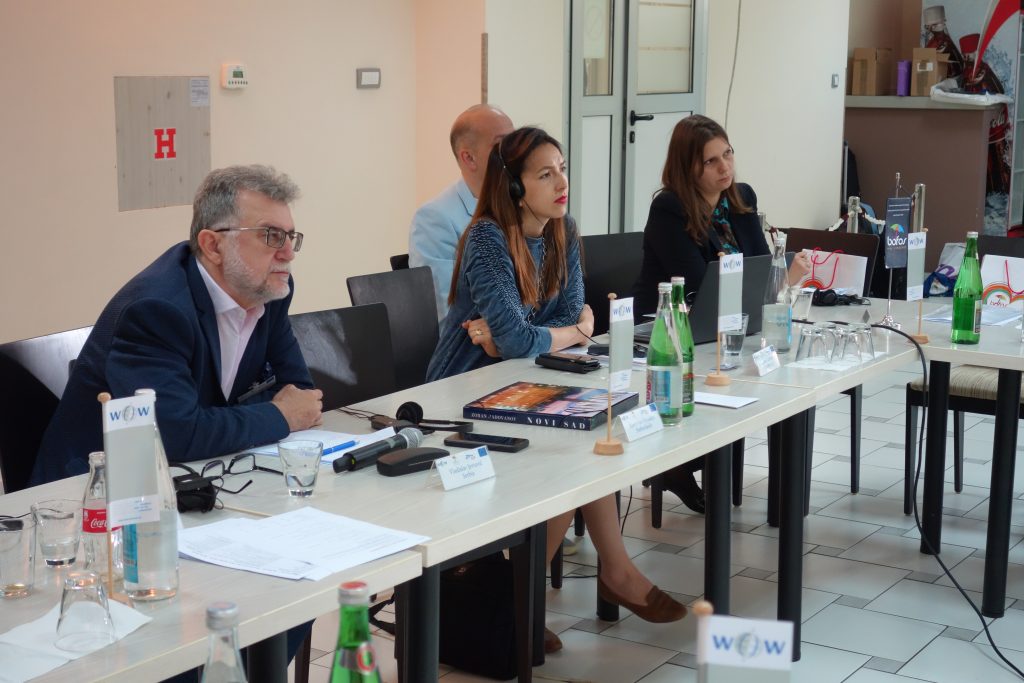From 18 – 20 April 2018 the World Organization of Workers (WOW) and SS BOFOS organized a seminar titled “Social dialogue in the financial sector: The future of labour relations in the financial sector”. The seminar took place in Novi Sad, Serbia and was organized in cooperation with the European Centre for Workers’ Questions (EZA) and supported by the European Commission.
Today we are witnessing a changing business model. The mode of operation has changed and the labour-market has changed to more flexible forms of employment. Every company that wants to progress should work on attracting talents. And if we cannot attract them by high income, we can do so with flexible working hours. The quality of life attracts talents, and this is actually flexibility, said Sabina Guerrero.
Dr. Živko Kulic says that everything is subject to change and in the future the working relationships that are here in Serbia will not be significantly different from those in other countries because the world has become « the global village ». Kulic predicts that the position of a job will become even less secure in the coming period. He further stressed that trade unions should work on strengthening and improving social dialogue, because the collective agreement has no real or lasting alternative. It is expected that tri-partism becomes multi-partism, i.e. to include new subjects in social dialogue.
Dr. Živka Pržulj says that today is the time of the Fourth Technological Revolution, which opens up the possibilities of fusion of technology. The new world of work will be primarily the world of individuals. Full-time employment will become a past. A new generation of employees will work by not having geographical constraints. Regarding the perspective of trade union organization, it is necessary to redefine the role of trade unions. The trade union should deal with principled matters.
Denis Strieder said that digital transformation is present in all industries. Data management allows banks to collect more information about their clients, improve their quality and develop new services. Know-your-customer model, or model ’’getting to know your client’’ will be the key to banking business. Banking will increasingly rely on customer data, it will become data-driven banking, said Denis Strieder. The key question is what are the services (advisory) that banks will offer to clients in the future, and which customers will be willing to pay?
Dr. Milan Erdelj pointed out that the development tends to move towards smart facilities, and development of artificial intelligence is present in all aspects of the industry. The question arises: should we be afraid? The answer is: no. Machine learning and deep learning do not pose a danger. We can turn off the machine. « The recommendation I would give is that we must be ready for constant learning, » said Milan Erdelj.
Dr. Djordje Mitrovic said that the biggest problem of growth today is actually access to information technology. There is a digital division. The digital division is the unequal economic development in the country and between countries, as well as the growing economic and social differences between individuals, households, businesses and regions in terms of access to and use of information technology. It is necessary to improve the ability of the labour force to deal with the contemporary challenges in the labour market, which are due to the impact of new technologies, said Djordje Mitrovic.
for pictures click here





